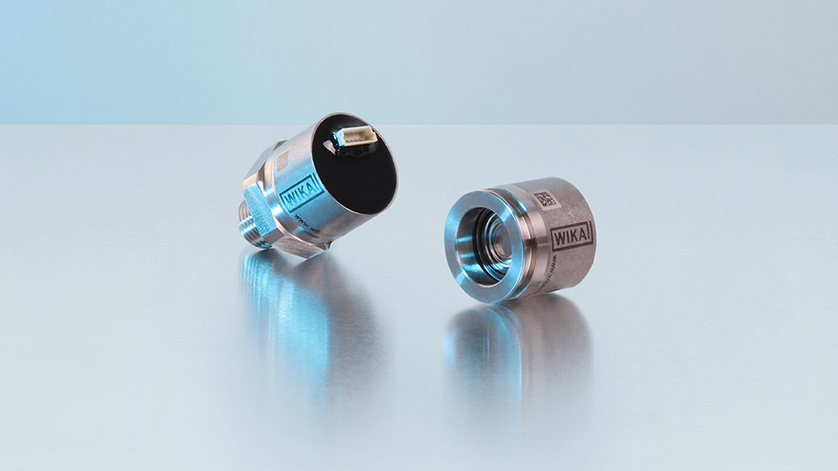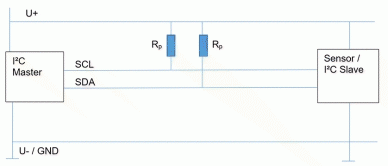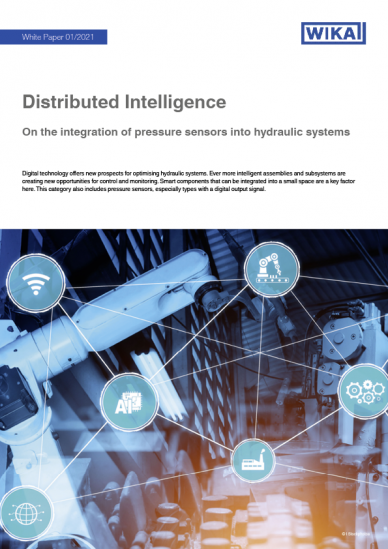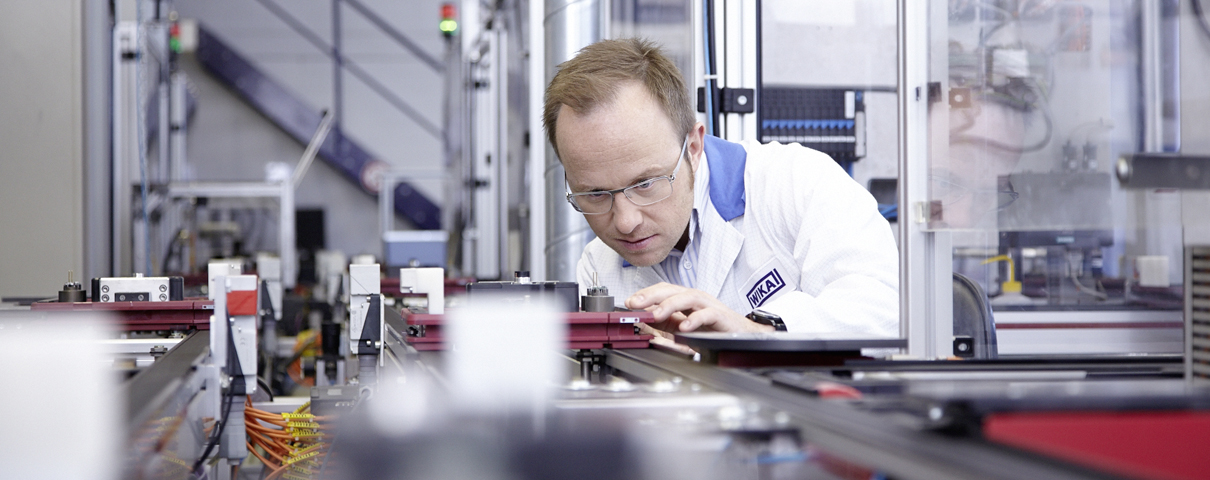
I²C was designed to communicate over short distances between printed circuit boards and is a simple, 8-bit serial data bus. In the meantime, it is not only PCB-mountable pressure sensors that use the I²C signal for data transfer, but also pressure sensors remote from customer electronics.
Remote sensors usually have the advantage of being less sensitive to contaminated or aggressive media and being able to measure directly at the process. In the case of sensors mounted directly on the circuit board, the sensor element is, in many cases, exposed directly to the medium. With remote sensors, steel or ceramic generally serve as the wetted surface.

I²C circuit
The I²C bus, alongside the two supply lines, requires only two further lines:
- SCL (serial clock line)
- SDA (serial data line)
Additional possibilities through I²C
The I²C bus is a well-known standard in electronics, offering additional possibilities for communication with a pressure sensor than with an analogue signal:
- In the data protocol, in addition to the pressure value, a temperature value and diagnostic information (for example an integrity test of the data transfer) can be transmitted via a status byte.
- Several pressure sensors can be connected to a bus line as “slaves” to the customer electronics that functions as a “master”.
- On the customer side, in contrast to the use of pressure sensors with analogue signals, the analogue-to-digital conversion of the pressure value for further signal processing is unnecessary since the pressure value is already present in digital form. This contributes to faster and easier signal processing.
- The electronics for communication can be built with standard components readily available on the market.
- Often, I²C signal pressure sensors are also optimised to consume less energy, making them ideal for battery-powered applications. In the WIKA portfolio, for example, this applies to the MPR-1 pressure sensor module.
Boundary conditions with the use of I²C
Since I²C is not a fieldbus, long wire lengths are not recommended. The maximum wire length depends, in detail, on the operating environment and the corresponding disturbing influences. I²C communication is best used in projects where the pressure sensor or the pressure sensor module is integrated into the customer product and thus protected against external influences. It should also be noted that with any digitally processed signal, the response time due to discrete-time sampling will be somewhat slower than for an analogue, continuous signal.
Note
Your contact person will be happy to help you with any further questions on digital interfaces.

Distributed Intelligence
Distributed Intelligence on the integration of pressure sensors into hydraulic systems
Fill below form and we will send you the whitepaper “Distributed Intelligence”.
We’re committed to your privacy. We’ll use your information to contact you about our services and products. Contact us at socialmedia@wika.com to revoke your permission to use your information.

